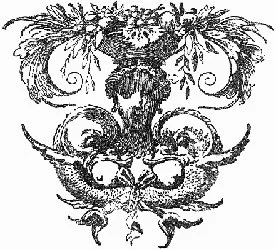The Well of Saint Clare Read Online
| page | |
| Prologue—The Reverend Father Adone Doni | 3 |
| San Satiro | 17 |
| Messer Guido Cavalcanti | 51 |
| Lucifer | 73 |
| The Loaves of Black Bread | 85 |
| The Merry-Hearted Buffalmacco | 95 |
| i. The Cockroaches | 96 |
| ii. The Ascending up of Andria Tafi | 106 |
| iii. The Master | 118 |
| iv. The Painter | 124 |
| The Lady of Verona | 133 |
| The Human Tragedy | 141 |
| i. Fra Giovanni | 141 |
| ii. The Lamp | 150 |
| iii. The Seraphic Doctor | 153 |
| iv. The Loaf on the Flat Stone | 156 |
| v. The Table under the Fig-tree | 159 |
| vi. The Temptation | 163 |
| vii. The Subtle Doctor | 169 |
| viii. The Burning Coal | 177 |
| ix. The House of Innocence | 179 |
| x. The Friends of Order | 187 |
| xi. The Revolt of Gentleness | 194 |
| xii. Words of Love | 200 |
| xiii. The Truth | 205 |
| xiv. Giovanni's Dream | 215 |
| xv. The Judgment | 223 |
| xvi. The Prince of this World | 231 |
| The Mystic Blood | 243 |
| A Sound Security | 257 |
| History of Doña Maria d'Avalos and the Duke d'Andria | 271 |
| Bonaparte at San Miniato | 289 |
THE WELL OF SAINT CLARE
PROLOGUE
THE REVEREND FATHER ADONE DONI
PROLOGUE
THE REVEREND FATHER ADONE DONI
Τὰ γὰρ φυσικὰ, καὶ τὰ ἠθικὰ ἀλλὰ καὶ τὰ μαθηματικὰ, καὶ τοὺς ἐγκυκλίους λόγους, καὶ περὶ τεχνῶν, πᾶσαν εἶχεν ἐμπειρίαν.—Diogenes Laërtius, IX, 37.1
 was spending the Spring at Sienna. Occupied all day long with meticulous researches among the city archives, I used after supper to take an evening walk along the wild road leading to Monte Oliveto, where I would encounter in the twilight huge white oxen under ponderous yokes dragging a rustic wain with wheels of solid timber—all unchanged since the times of old Evander. The church bells knelled the peaceful ending of the day, while the purple shades of night descended sadly and majestically on the low chain of neighbouring hills. The black squadrons of the rooks had already sought their nests about the city walls, but relieved against the opalescent sky a single sparrow-hawk still hung floating with motionless wings above a solitary ilex tree.
was spending the Spring at Sienna. Occupied all day long with meticulous researches among the city archives, I used after supper to take an evening walk along the wild road leading to Monte Oliveto, where I would encounter in the twilight huge white oxen under ponderous yokes dragging a rustic wain with wheels of solid timber—all unchanged since the times of old Evander. The church bells knelled the peaceful ending of the day, while the purple shades of night descended sadly and majestically on the low chain of neighbouring hills. The black squadrons of the rooks had already sought their nests about the city walls, but relieved against the opalescent sky a single sparrow-hawk still hung floating with motionless wings above a solitary ilex tree.
I moved forward to confront the silence and solitude and the mild terrors that lowered before me in the growing dusk. The tide of darkness rose by imperceptible degrees and drowned the landscape. The infinite of starry eyes winked in the sky, while in the gloom below the fireflies spangled the bushes with their trembling love-lights.
These living sparks cover all the Roman Campagna and the plains of Umbria and Tuscany, on May nights. I had watched them in former days on the Appian Way, round the tomb of Cæcilia Metella—their playground for two thousand years; now I found them dancing the selfsame dance in the land of St.



1 comment